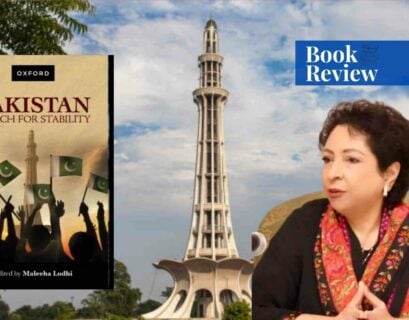Introduction
In August 2021, when the Taliban returned to power in a swift turnover, the hopes they had given for this “Islamic Emirate of Afghanistan” was that they would distance themselves from their radical rule and be committed to strengthening internal peace within the country. This included strengthening their resolve to provide social rights, and not resorting to violence as they had done in the past.
However, by the close of 2022, the Taliban backtracked on their promises, and since then, thousands of Afghan women, men, and children have fled the country for their lives. The Taliban had made a treasure trove of promises, such as infrastructure up-gradation, permitting women to work, and promoting the need for education.
As flimsy as those pledges were, the final blow to women’s education came on 20th December, 2022, when females were banned from pursuing education in universities, despite the promise to preserve women’s rights. Approximately 23 percent of Afghanistan’s population is internally displaced due to conflict and violence. Its humanitarian crisis has only worsened as the West has placed innumerable sanctions on the country, dissuading investment and plunging it into turmoil.
A Series of Events Set into Motion
This suppression of women wasn’t done overnight; in September of 2021, the Taliban announced gender-segregated classrooms, and hijabs were made a compulsory part of the dress code. Later, in 2022, secondary schools were first targeted, and under an issued directive, it was stated that all girls above sixth grade wouldn’t be allowed to attend school.
In addition to the above, traveling without a “mahram,” a male escort, was also declared unlawful. After this, violence became an option, which the Taliban did not hesitate to exercise. Journalists were beaten up, freedom of the press was censored, and females, in general, weren’t allowed to become anchorpersons or work in any entertainment-related industry.
An element that reaffirmed the fears of Afghans was the Taliban’s flagrant abandonment of human rights. On 7th December, the first public execution was carried out in the Farah province. Since then, beatings and floggings have become the norm. The final nail in the coffin, with respect to the suppression of social rights for Afghan women, has come out recently, where the Taliban have suspended higher education of females until further notice.
While human rights activists, as well as countries like the United States and the European Union, have been quick to criticize the unrecognized regime, little effort has been taken on their part to promote a settlement that can work in favor of the oppressed women of Afghanistan, who continue to be tormented on a daily basis by the Taliban in one way or the other, under the guise of following the Shariah law (a set of Islamic principles that governs the day-to-day activities of an individual).
A Terrible Ripple Effect
The Taliban may be claiming to work under the laws of the “Shariah,” but the foundations of such an assertion are absurd. The purpose of Shariah has never been to undermine women’s rights. Islam is one of the pioneering religions that acknowledges the need for education for all genders. Hibatullah Akhundzada has imposed his conservative interpretation of the Shariah law on the country instead of offering adequate governance and policymaking.
The opportunity cost of the Taliban regime’s decision to prevent women from gaining higher education, in particular, may not represent itself now. Still, in the years to come, there will undoubtedly be a multiplier effect, which will have unequivocal consequences for the entire nation. For starters, there will be greater isolation of Afghanistan on the international stage.
With the poverty rate soaring to a staggering 97 percent in 2022, it is expected that the upcoming years will only see more misery for Afghans. Moreover, the country’s financial stability such as opportunities for garnering foreign direct investments, broadening the spectrum of comparative advantage in areas such as trade, and overall targeting innovation in capital-intensive industries will also become a far-fetched dream for the country.
With the Taliban already having restricted foreign non-governmental organizations (NGOs) from employing women, the chances are that soon these operations will also cease. Women are an incremental part of society; when their rights are infringed upon by their rulers, then it is not only them who pay the price, but the entire country does as well.
A Way Out?
The international community can play a pivotal part; the recognition of the Taliban’s rule can be contingent upon some favorable policies to ensure that they have a track record of responsible governance. Another step could be for the world community to temporarily stop their NGO operations in Afghanistan, to threaten the Taliban with a lack of funds so that they can revise their social policies for Afghan women and even reverse them altogether.
The ILO, UNICEF, and UNESCO can also offer intervention by encouraging dialogue with other Muslim countries and the West to minimize the cost of human suffering. The United Nations can appoint a mediator, an impartial party that can listen to both sides and draft recommendations accordingly, which the Taliban regime should adhere to get their authority and rule accepted by the world.
While the aforementioned policies may seem ambitious, they are the final resort and perhaps the only outlet, which can bring forth a stable Afghanistan, where rights are valued, reductionist ideologies are put at rest, conservative ideas are offered some ground of flexibility, and the welfare of the people and the women are explicitly given precedence. If this isn’t accomplished, history will repeat itself, backward mindsets will continue to reign, and the future of young women and girls of Afghanistan will be jeopardized for nothing fruitful.
If you want to submit your articles and/or research papers, please check the Submissions page.
The views and opinions expressed in this article/paper are the author’s own and do not necessarily reflect the editorial position of Paradigm Shift.



















